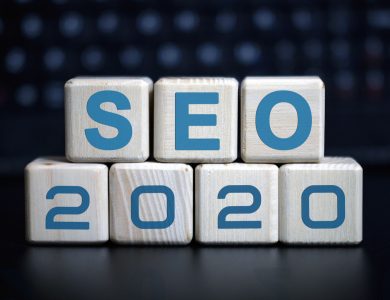
Search Engine Land’s daily brief offers daily insights, news, tips, and essential bits of wisdom for today’s search marketers. If you wish to get this before the rest of the internet, you can sign up to have it delivered to your inbox daily.
Good morning, Marketers. We’re back in the groove after the July 4th break, and the numerous Google updates over the busy past month can feel overwhelming.
To recap, there were about ten Google updates in the past month; only three were unconfirmed by Google. Chronologically, we had the July 2021 core update, the Google MUM rollout this month, the June 28 spam update, the June 23 spam update, the Google page experience update, the Google predator algorithm update, the June 2021 core update, and a few unconfirmed updates. Some updates are still rolling out, many overlapped, and most are complex to understand. Additionally, expect a seasonal traffic decline from the July 4th weekend.
Yes, it is a lot, and it can be hard to manage. Determining which update affected a site is challenging, especially with overlapping updates. Analyzing your traffic drop by examining your analytics can help pinpoint whether an algorithm update, a technical site change, or seasonality impacted your site.
More importantly, take a step back, breathe, and think about higher-level strategies to improve your website.
Barry Schwartz,
Google update counselor
How Google ranks search results
Gary Illyes from Google discussed on the latest Search Off the Record podcast how Google ranks search results. Initially, Google creates a shortlist of about 1,000 results for a given query, based on the relevance and topic. Then, Google applies its ranking signals and factors to this list, which Gary describes as “the magic” that determines the final ranking.
Gary goes deeper into how scores and numbers are assigned to each document, tiebreakers, and more.
Learn more.
Microsoft Advertising expands Dynamic Remarketing beta and a few other important announcements
Previously exclusive to Retail (Hotels/Vacation Rentals), Microsoft Advertising’s beta for Dynamic Remarketing now includes Automotive (listings), Entertainment (events), and Travel (Tours and Activities), just in time for summer.
Additionally, Microsoft announced other feature updates:
- The platform UI now shows the segment size based on target markets for campaigns/ad groups.
- Automated bidding tactics like Maximize Conversions, Maximize Clicks, Target CPA, and Target ROAS are now available for the Microsoft Audience Network.
- New RSA insertions will dynamically insert countdowns for events and locations to increase relevancy based on searcher location.
- Changes to phrase match and broad match modifier are now live across all markets.
- The Microsoft Advertising Intelligence tool has been deprecated.
Read more here.
How Google uses machine learning to prevent spam
In the latest Search Off the Record podcast, Dewey from Google’s search quality team discussed spam prevention using machine learning. Google uses a highly effective and comprehensive machine-learning model to handle most obvious spam, allowing the search quality team to focus on more critical work.
Google’s extensive data over the years aids its machine learning models in spam prevention, and it was insightful to hear about this approach.
Learn more.
Google AdSense anchor ads on wider screens
AdSense publishers, Google is expanding support for anchor ads on wider screens starting July 19, 2021. Anchor ads stick to the top or bottom of the web page as you scroll.
“Anchor ads now support a larger range of screen sizes, including wider screens such as desktop. For sites with anchors enabled, these ads will start appearing on wider screens. Our experiments show that anchor ads perform well on wider screens. If you prefer not to show anchors on wider screens, you can disable this option in your Auto ads settings. These wide-screen anchors will start serving after July 19, 2021,” Google announced.
Learn more.
Nofollow links and indexing, Google Assistant recordings and site moves
Nofollow links do not prevent indexing. Gary Illyes and John Mueller from Google indicated that using nofollow links internally to prevent indexing is not recommended. Instead, robots.txt and noindex meta tags should be used.
Google Assistant audio recording. Google explained how audio searches are recorded on Google Assistant devices.
Site moves and ranking. John Mueller from Google mentioned on Twitter that any site move can impact visibility and advised only moving a site for good reasons, regardless of ongoing updates.
We’ve curated our picks from across the web so you can retire your feed reader.
- A Step-by-Step Strategy for B2B Pillar Pages – Moz
- Google Lens gets some tweaks to simplify visual search – 9to5Google
- Original Content and Original Authors Identified by Google – Go Fish Digital
- Product updates for July: Dynamic Remarketing – Microsoft Advertising
- What Everybody Ought to Know About Events & Google My Business – Sterling Sky



